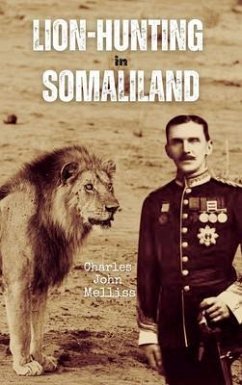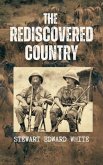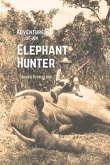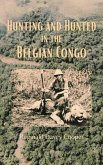"Remarkably interesting book...intensely enjoyable...wonderful feat of shooting five full grown lions in half an hour." -Glasgow Herald, May 16, 1895
"Captain Melliss is a true sportsman who tries conclusions with the king of beasts...found in Somaliland the finest lion-hunting country in the world." -London Daily News, May 18, 1895
"Colonel Melliss...was mauled by a lion...the lion knocked him down and stood over him." - The Rifle Brigade Chronicle 1903
"Colonel Melliss, a redoubtable lion hunter." -A Naturalist's Life Study in the Art of Taxidermy (1913)
Owing his life to nothing but the trueness of his aim, what compelled British big game hunter Melliss to risk his life hunting multiple lions at the same time in the British colony of Somaliland?
In 1895, Charles John Melliss (1862 -1936) published a narrative of his lion hunting adventures in Somaliland in his book of 110 pages titled "Lion-hunting in Somaliland." It is this book that has been republished here for the convenience of the interested reader.
Melliss set out for his lion hunt in Somaliland with a caravan of ten camels, twelve Somalis, and two donkeys. His destination was the Haud, a waterless plateau about one hundred and fifty miles distant in the interior.
The game along the route chiefly consisted of gazelle, antelopes, guinea-fowl, and bustards, while at night jackal and hyæna serenaded the camp. At last the Haud was reached, and plenty of larger game, oryx and hartebeest, supplied the camp with meat, and the spoor of lions began to be found. A Somali soon brought news of the brutes themselves, and after a fast ride, Captain Melliss found himself for the first time face to face with the king of beasts.
The most exciting form of the sport, however, was not to ride up on foot to lions and dismount to shoot, as Captain Melliss usually did, but was to track a lion's spoor and follow him up on foot into the thick jungle, an exciting experience which our author several times enjoyed with the keenest appreciation.
About the author:
Major General Sir Charles John Melliss, (1862 - 1936) was a British Army officer of the late 19th and early 20th centuries and a recipient of the Victoria Cross, the highest award for gallantry in the face of the enemy that can be awarded to British and Commonwealth forces. His regiment served in East Africa 1902-04, where he was badly mauled by a lion in 1903. He commanded the 53rd Sikhs (Frontier Force) 1906-10 and served on the North West Frontier operations (Zakka Khel) of 1908. He was promoted major general on 19 March 1912.
"Captain Melliss is a true sportsman who tries conclusions with the king of beasts...found in Somaliland the finest lion-hunting country in the world." -London Daily News, May 18, 1895
"Colonel Melliss...was mauled by a lion...the lion knocked him down and stood over him." - The Rifle Brigade Chronicle 1903
"Colonel Melliss, a redoubtable lion hunter." -A Naturalist's Life Study in the Art of Taxidermy (1913)
Owing his life to nothing but the trueness of his aim, what compelled British big game hunter Melliss to risk his life hunting multiple lions at the same time in the British colony of Somaliland?
In 1895, Charles John Melliss (1862 -1936) published a narrative of his lion hunting adventures in Somaliland in his book of 110 pages titled "Lion-hunting in Somaliland." It is this book that has been republished here for the convenience of the interested reader.
Melliss set out for his lion hunt in Somaliland with a caravan of ten camels, twelve Somalis, and two donkeys. His destination was the Haud, a waterless plateau about one hundred and fifty miles distant in the interior.
The game along the route chiefly consisted of gazelle, antelopes, guinea-fowl, and bustards, while at night jackal and hyæna serenaded the camp. At last the Haud was reached, and plenty of larger game, oryx and hartebeest, supplied the camp with meat, and the spoor of lions began to be found. A Somali soon brought news of the brutes themselves, and after a fast ride, Captain Melliss found himself for the first time face to face with the king of beasts.
The most exciting form of the sport, however, was not to ride up on foot to lions and dismount to shoot, as Captain Melliss usually did, but was to track a lion's spoor and follow him up on foot into the thick jungle, an exciting experience which our author several times enjoyed with the keenest appreciation.
About the author:
Major General Sir Charles John Melliss, (1862 - 1936) was a British Army officer of the late 19th and early 20th centuries and a recipient of the Victoria Cross, the highest award for gallantry in the face of the enemy that can be awarded to British and Commonwealth forces. His regiment served in East Africa 1902-04, where he was badly mauled by a lion in 1903. He commanded the 53rd Sikhs (Frontier Force) 1906-10 and served on the North West Frontier operations (Zakka Khel) of 1908. He was promoted major general on 19 March 1912.
Dieser Download kann aus rechtlichen Gründen nur mit Rechnungsadresse in A, D ausgeliefert werden.









